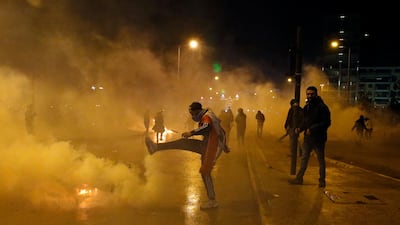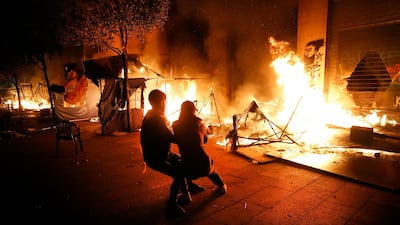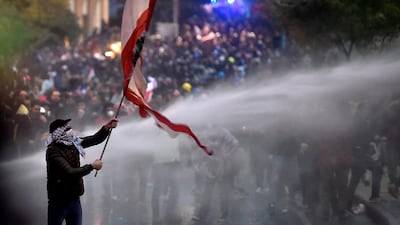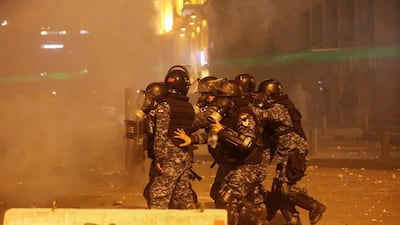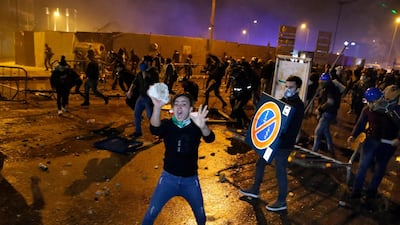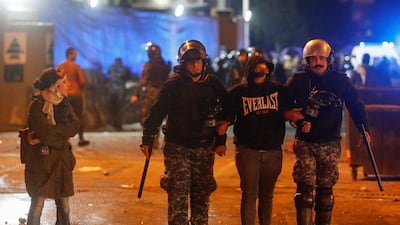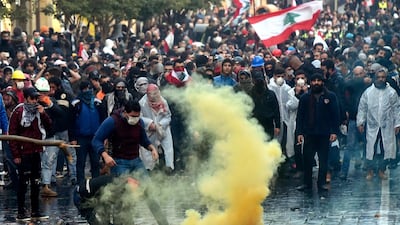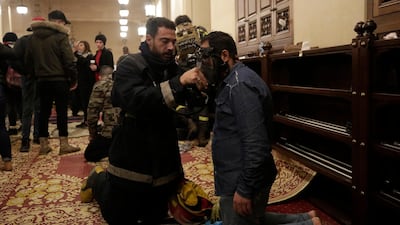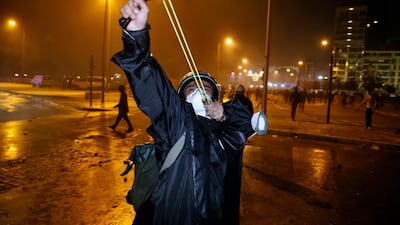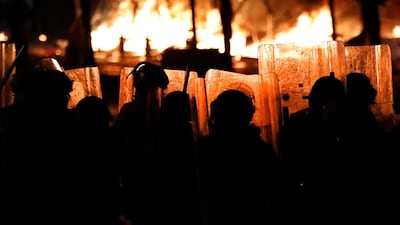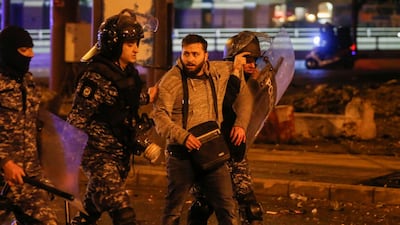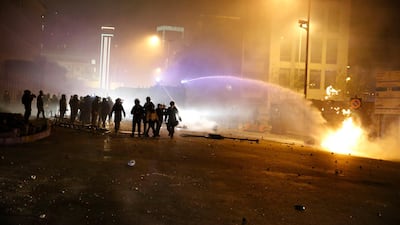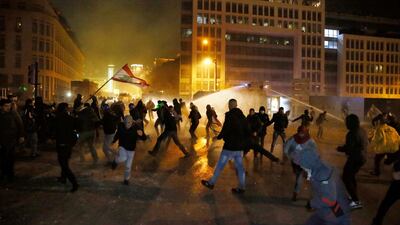Lebanon’s protests started on October 17 under the slogan, “Peaceful, the revolution is peaceful”.
Eager to not be accused by politicians of causing chaos, protesters touted non-violence, handed out flowers to policemen, organised debates and set up free kitchens.
Something changed these past weeks. A new chant has emerged: “not peaceful, this revolution is not peaceful”, to which the crowd responds: “The revolution is not peaceful. Yes, we will break things”.
The initial hope of overturning Lebanon’s corrupt sectarian system of power-sharing by non-violent means has vanished. The previous government resigned two weeks after the protests began but politicians are still arguing over the formation of a new one.
In the past week protesters vandalised not only banks, which have limited people's access to their money, but also public property.
On Saturday, the army deployed in central Beirut carrying not only guns but rocket-propelled grenades, and riot police increased their use of rubber bullets. Hundreds were wounded on both sides.
Protesters and journalists who spoke to The National have pinpointed the change to early this month, when the restrictions on cash withdrawals and an increase in unemployment started to bite.
Banks introduced the limits in early November, two weeks after protests started, but the local economy has been suffering for several years from shrinking inflows of cash, including remittances, and continuing wars the region. Importers were already complaining of a liquidity shortage last summer.
For Layal Bou Moussa, a Lebanese TV reporter who has covered the protests extensively, it is the government’s lack of response to the financial crisis that has increased public anger and led to the violence.
“The people became aggressive when they realised that they could not take out more than 100 or 200 dollars a week,” she said. “In parallel, security forces are exhausted. They have been on the ground for over 90 days.”
Protesters smashed bank windows and ATMs for the first time in a busy commercial street in Beirut on January 14.
"Attacking banks is like targeting politicians. Many of them are shareholders in banks," said Bou Moussa, who works for Al Jadeed, which is sympathetic to the "revolution".
Caretaker Interior Minister Raya Al Hassan and close relatives of Mr Hariri, who stepped down on October 29, are board members of BankMed. Caretaker Economy Minister Mansour Bteich is a former general director of Fransabank.
On Sunday, protesters in Beirut also vandalised a store of the Alfa telecom network and an outlet of Patchi, a high-end chocolatier.
Patchi's chief executive is Mohammad Choucair who, as telecom minister, proposed the tax on WhatsApp calls that sparked the protests. With Lebanon's mobile-service providers charging higher rates than the regional average, most people prefer to use WhatsApp's free calling function.
Few had sympathy for either Alfa or Patchi. “Personally, I would not like to vandalise, but they both deserved it,” said Perla Joe, who has been active in the protests since they began. “I saw kids yesterday of maybe 16 years old running around with cables and headphones. They were happy. They probably could not afford them.”
The World Bank estimates that nearly 30 per cent of Lebanese live in poverty and that this could increase to 50 per cent if the economic situation worsens. “It’s not OK for politicians to belittle people who are hungry,” said Mrs Joe.
The increase in police violence on Saturday evening seems to have scared away protesters in Beirut for now. Numbers dwindled from several thousand to a few hundred the next day.
"The army took away gas masks, tennis rackets and helmets from people" that they use as protection against stones and tear gas, said Feyrouz Abou Hassan, who has been flying the same Lebanese flag every day of the protests. "It increased the number of people that left earlier."
Protesters worry that violence will only escalate as the country waits for a new government.
“I really hope that we do not spill too much blood for these people because they do not deserve it,” said Mrs Joe.
